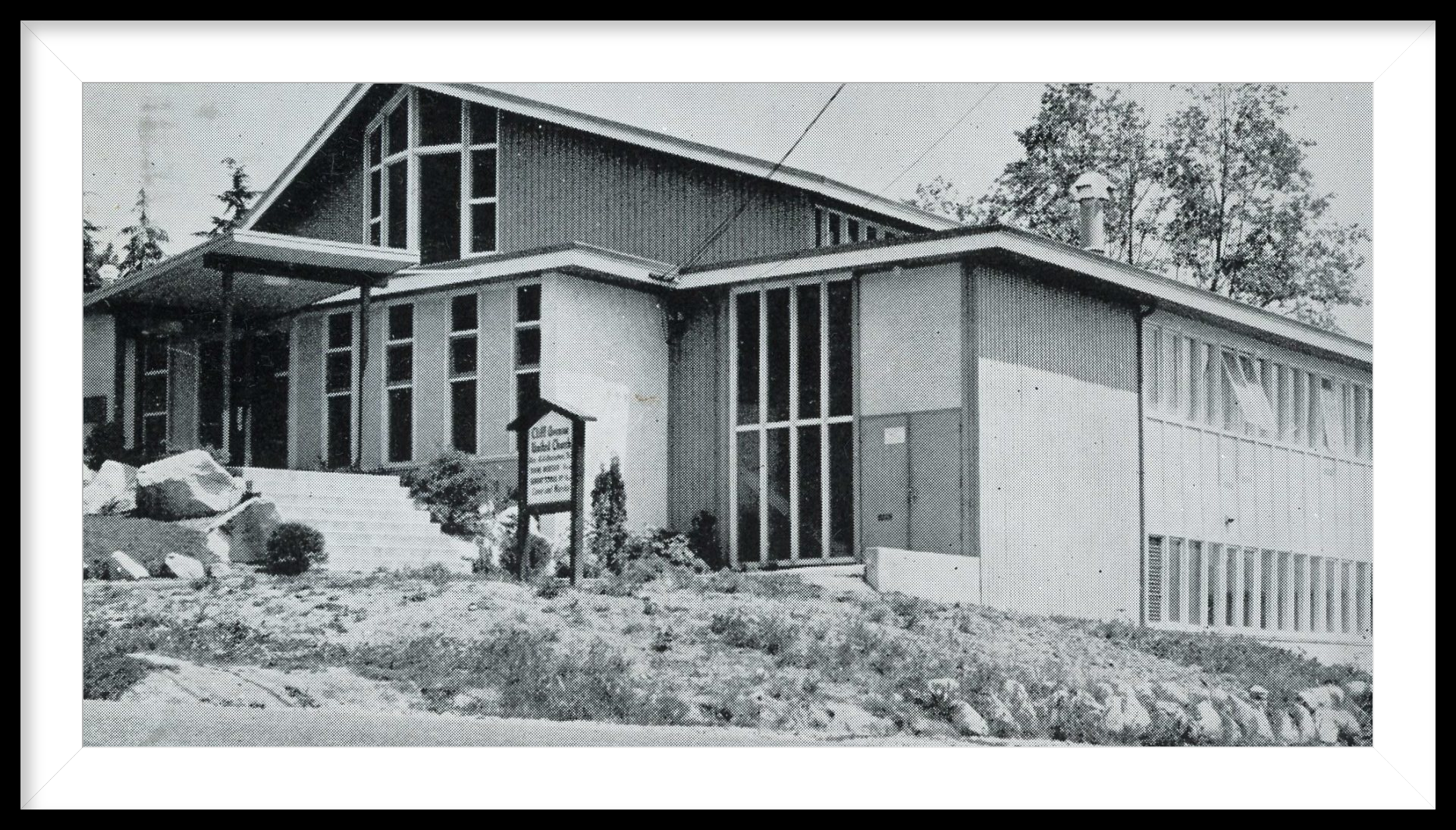A H Harry Oussoren • January 22, 2020
God's House or Club House?
Good stewardship of church facilities is a key factor in God's mission

God’s House or Clubhouse
Across the land, congregations are wrestling with building and property concerns. Some congregations don’t have enough space because they’re growing. But more are coping with too much space and maintenance headaches in aging buildings.
Changed economic, social, and political realities have often resulted in more space than needed. When the congregations were large, there was little thought of “renting out” space. With demographic shifts and the general decline of institutional Christianity, many congregations have turned to buildings as a potential revenue source to counter shrinking budgets.
We are a church with open doors. Our theology led us to be hospitable to others’ using available space. In some cases, this has meant welcoming other - often “ethnic” congregations – of various denominations and sometimes other faiths - to share the sanctuary and Christian Education space. Choirs and orchestras use space to practice and hold performances. Many congregations have nursery schools or daycares occupying the Sunday School rooms. Gyms house local dance groups, Guides or Scouts, youth drop-ins, Alcoholics Anonymous, or a host of other users. Extra offices are made available to non-profits running a program in the building. Kitchens are used for Meals-on-Wheels or community kitchens. Parking lots accommodate neighbours’ cars, school busses or neighbourhood fairs.
Sometimes this space is offered free of charge, reflecting the congregation’s capacity for serving the community. Other times the relationship is simply that of landlord and tenant reflecting the desire to add cash flow to the congregation’s revenue line.
When it’s just “rent,” questions emerge about who owns what. In the United Church, all property is held by trustees for the Church as a whole – past, present, and future. That is, we believe that church property belongs to God and all church buildings are houses of God – places to carry out God’s mission. A church is not the clubhouse for some religious folks. It is a centre for God’s mission local and global. American Presbyterian Charles Henderson describes churches as “sacred space where the life of the Spirit meets life in the world.”
Sharing space in God’s house calls for relationships. When space in church facilities is simply rented out – landlord and tenant-like, the relationship is focussed on quasi legal transaction. We provide space. You pay. If this describes a relationship with an “ethnic” United congregation, then it is huge opportunity missed. The opportunity is to become partners in the common United Church mission. In this situation, “rent” and “lease” are totally wrong concepts. Authentic would be: “what can each of us as congregations of the United Church contribute to ensure that this house of God will continue to be available for mission.”
Putting it that way may require a fundamental shift in how we understand church buildings. We need to acknowledge that whoever enters the church is graced to be a guest in God’s house.
Similarly, with other community users of space, the only question to discuss is not, how much rent? Rather we need to discuss: what does it cost to maintain this house of God, and, from our abundance, how much can we all contribute fairly to stewarding this building for a sustainable future?
To answer questions like these requires developing relationships with space users that go well beyond a rental contract. The other is no longer just a revenue source to prop up the congregation’s finances, but a house partner sharing in God’s mission to bless the world. Like the congregation, such partners have a stake in ensuring that the building keeps being available for community service. They share responsibility to contribute to its immediate and long term upkeep.
At one church, the Council divided the congregational budget into two parts. One part reported on costs for the congregation’s ministry – worship, education, outreach, caring, balanced by revenues from contributions and endowment interest. The other part reflected building revenues and expenses – contributions from space users offset by costs incurred through routine maintenance and cleaning, energy costs, and facility-related staff.
The Council learned that the large building generated more revenue than current expenses and the “surplus” was substantially subsidizing the congregation’s ministry. But at whose expense? The building’s. The subsidy was just about what was needed for capital improvements to keep God’s house sustainable for mission.
The financials helped the congregation understand its financial situation differently. It learned that the building can have a ministry which is not completely dependent on the congregation. And building income can be regarded not as “rent” but as other users’ investment in the well-being of God’s house for today and many more tomorrows?
Any congregation making space available to community groups is confronted by the same issue - though many won’t have building revenues that exceed current operating expenses.
When God’s house exceeds the congregation’s needs, there is prudence in looking for goodwill partners who need a place where they can contribute to what we understand as the life-encompassing mission of God. And then it makes good sense to invite those friends to share - as they are able - in the costs of maintaining this centre of God’s mission..
We know about that from our families. We don’t expect an overnight visitor to “pay rent”. But when family or friends share the house for the long term, we don’t hesitate to ask them to share in household expenses. The request is based on a deepening relationship of shared purpose and mutual need.
Congregational trustees have fiduciary responsibility for United Church facilities. But when “house partners” are involved, a congregation might decide that it wants to invite the others to be part of a property stewardship group. That can serve many purposes. It gets everybody talking about the building’s importance to their mission. It demonstrates that the relationship has gone beyond landlord and tenant and is now a partnership in keeping God’s house fit for mission.
Church buildings certainly can feel like a major burden and albatross for congregations – especially when membership is shrinking. When we act like owners of these buildings for our own use and benefit – the club house syndrome, then we lose our theology of church building and burden ourselves unnecessarily.
But when we recognize that all church buildings are houses of God and a locus of God’s mission, then as United Church folk we happily remember that God uses many other groups and organizations of goodwill to bless the world. Welcoming such partners into the house and inviting them to share in stewarding the place not only makes good sense, it recognizes God as proprietor and host.
Club house or God’s house? The United Church understanding was settled in 1925. All church property is God’s house to witness to Good News till God’s shalom reign is fulfilled.
(revised 2008, 2018)

